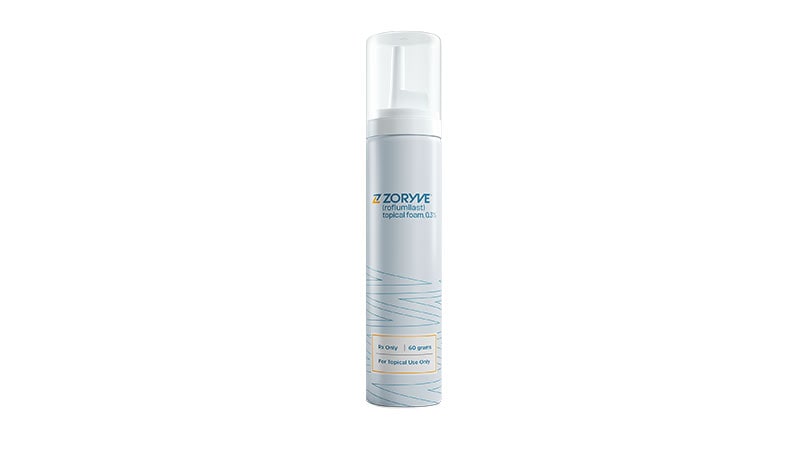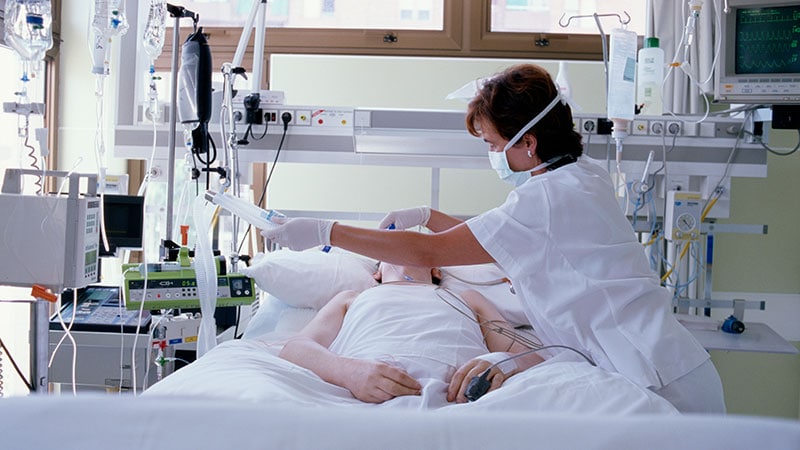Vedolizumab Shows Greater Persistence Than Tofacitinib in UC
STOCKHOLM, Sweden — The monoclonal antibody vedolizumab (Entyvio, Takeda) showed significantly greater treatment persistence than tofacitinib (Xeljanz, Pfizer), a small-molecule Janus kinase (JAK) inhibitor, in bio-naive patients with ulcerative colitis (UC), according to a retrospective study.
Steroid-free clinical remission was also higher in patients on vedolizumab at week 12, although rates of biochemical and fecal biomarker remission were comparable.
"These data might help inform the positioning of advanced therapy in UC," reported Beatriz Gros, MD, gastroenterologist from Western General Hospital, Edinburgh, Scotland, who presented the results at the 19th Congress of the European Crohn's and Colitis Organization.
The number of therapies for moderate to severe UC has increased in recent years, but there are few data comparing different classes of compounds, said Gros. "There are currently no head-to-head randomized controlled trials for biologic drugs compared with small-molecule drugs in inflammatory bowel disease."
Gros and her colleagues conducted a retrospective study of bio-naive patients with UC from the NHS Lothian region of Scotland who were given either tofacitinib or vedolizumab as their first advanced therapy. Patients older than 65 years were excluded to account for regulatory guidelines for the use of JAK inhibitors as first-line therapies across immunomodulatory drugs. Participants on chemotherapy or immunosuppressants were also excluded.
The analysis used propensity weighting; the inverse probability of treatment weighting was used to assess treatment persistence. The probability of treatment assignment was calculated via logistical regression using data recorded at treatment start: Age, gender, UC duration, extent, C-reactive protein (CRP), partial Mayo score, and concomitant steroids.
Data on 158 patients were included, of whom 77 patients received tofacitinib and 81 patients received vedolizumab. Median follow-up for patients on vedolizumab was 3.1 (1.6-4.8) years and 1.5 (0.34-2.3) years for tofacitinib.
The primary outcome was treatment persistence. Secondary outcomes included loss of response, adverse events, and clinical, biochemical, and fecal biomarker steroid-free remission at week 12.
Baseline characteristics were comparable, except for disease extent. "It's interesting that most patients on vedolizumab had extensive disease, while most patients on tofacitinib had left-side colitis or proctitis; this may have impacted the results," Gros said.
Treatment Persistence Greater With Vedolizumab
The adjusted drug persistence at 12 months — the primary outcome — was 84% for the vedolizumab group vs 59.7% for the tofacitinib group (P = .005).
Primary nonresponse was found in 9.9% in the patients taking vedolizumab vs 17.3% of patients on tofacitinib. Secondary loss of response (during maintenance treatment) was 23.4% for vedolizumab vs 13.0% for tofacinitib.
Unadjusted remission at week 12, a key secondary outcome that comprised steroid-free clinical, biochemical, and fecal calprotectin remission, was "slightly better for steroid-free clinical remission in the vedolizumab arm [69%] than tofacitinib [51%] but not significantly different for CRP or calprotectin," Gros reported.
Overall safety favored vedolizumab, Gros said.
Adverse events occurred in 13.6% of the vedolizumab group vs in 24.7% of the tofacitinib group. Adverse events that resulted in temporary discontinuation included 14.3% of patients in the tofacitinib group and only 1.2% of patients in the vedolizumab group.
Gros acknowledged the limitations of the study, including the retrospective design, the differences in the treatment periods and timing of onset of action, and perceived safety issues that could have influenced withdrawal from tofacitinib sooner than from vedolizumab.
Gros also noted that they were unable to look at steroid use.
"We need to analyze it in more detail, given some patients on tofacitinib increased its dose during follow-up," Gross said. "This is something we need to be aware of."
Gros has served as a speaker for Abbvie, Janssen, Pfizer, Takeda, and Galapagos.


 Admin_Adham
Admin_Adham


